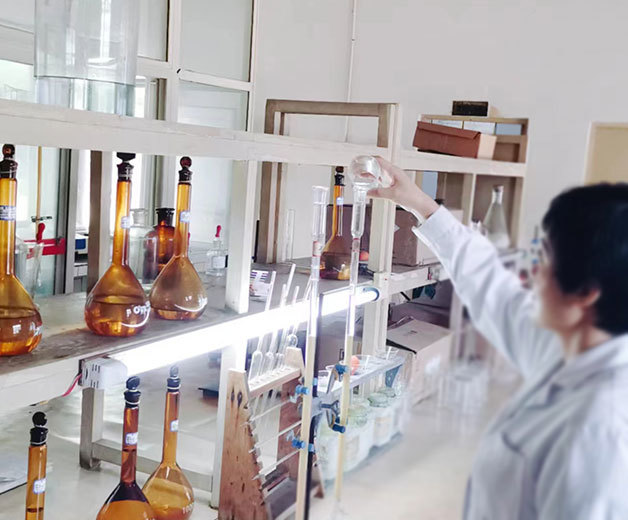Understanding Chemical Dispersants: Key Applications and Benefits in Modern Chemistry
2025-06-17
Chemical dispersants are specialized substances that help to disperse particles in a medium, preventing them from clumping together and ensuring a uniform distribution. In the field of biochemistry, particularly within the chemical industry, these dispersants play a vital role in enhancing product performance and stability. Their applications are diverse, ranging from improving the efficacy of pha

Chemical dispersants are specialized substances that help to disperse particles in a medium, preventing them from clumping together and ensuring a uniform distribution. In the field of biochemistry, particularly within the chemical industry, these dispersants play a vital role in enhancing product performance and stability. Their applications are diverse, ranging from improving the efficacy of pharmaceuticals to optimizing formulations in cosmetic products and industrial materials.
One of the primary functions of chemical dispersants is to facilitate the even distribution of solid particles in liquid systems. This property is crucial in numerous applications, such as the production of paints, coatings, and inks, where achieving a homogenous mixture is essential for consistent quality. Additionally, in the pharmaceutical industry, dispersants are often employed to enhance the solubility of poorly soluble drugs, significantly improving their bioavailability and therapeutic effectiveness.
Moreover, in the formulation of personal care products, chemical dispersants contribute to the stability and texture of creams, lotions, and shampoos. By ensuring that active ingredients are evenly distributed, these dispersants help maintain product integrity over time, preventing separation and sedimentation. This stability is not just beneficial for consumers; it also enhances the manufacturers' reputation by ensuring product reliability.
Chemical dispersants find significance in the environmental sector as well. They are used in oil spill remediation efforts to break down and disperse oil, thereby minimizing damage to marine ecosystems. By increasing the surface area of oil particles, dispersants promote the natural degradation processes, facilitating more effective cleanup operations.
When selecting a chemical dispersant, several factors must be considered, including the nature of the material to be dispersed, the medium used, and the specific application requirements. It is essential to choose a dispersant that is compatible with the other components in the formulation to achieve desired results.
In conclusion, chemical dispersants are indispensable tools within the biochemistry field, offering significant advantages across various applications. Their ability to improve stability, enhance performance, and support environmental initiatives underscores their importance in modern industrial practices. Understanding the role of these substances can lead to better product development and more effective solutions in the ever-evolving chemical landscape.
One of the primary functions of chemical dispersants is to facilitate the even distribution of solid particles in liquid systems. This property is crucial in numerous applications, such as the production of paints, coatings, and inks, where achieving a homogenous mixture is essential for consistent quality. Additionally, in the pharmaceutical industry, dispersants are often employed to enhance the solubility of poorly soluble drugs, significantly improving their bioavailability and therapeutic effectiveness.
Moreover, in the formulation of personal care products, chemical dispersants contribute to the stability and texture of creams, lotions, and shampoos. By ensuring that active ingredients are evenly distributed, these dispersants help maintain product integrity over time, preventing separation and sedimentation. This stability is not just beneficial for consumers; it also enhances the manufacturers' reputation by ensuring product reliability.
Chemical dispersants find significance in the environmental sector as well. They are used in oil spill remediation efforts to break down and disperse oil, thereby minimizing damage to marine ecosystems. By increasing the surface area of oil particles, dispersants promote the natural degradation processes, facilitating more effective cleanup operations.
When selecting a chemical dispersant, several factors must be considered, including the nature of the material to be dispersed, the medium used, and the specific application requirements. It is essential to choose a dispersant that is compatible with the other components in the formulation to achieve desired results.
In conclusion, chemical dispersants are indispensable tools within the biochemistry field, offering significant advantages across various applications. Their ability to improve stability, enhance performance, and support environmental initiatives underscores their importance in modern industrial practices. Understanding the role of these substances can lead to better product development and more effective solutions in the ever-evolving chemical landscape.


 TESFA STPP
TESFA STPP